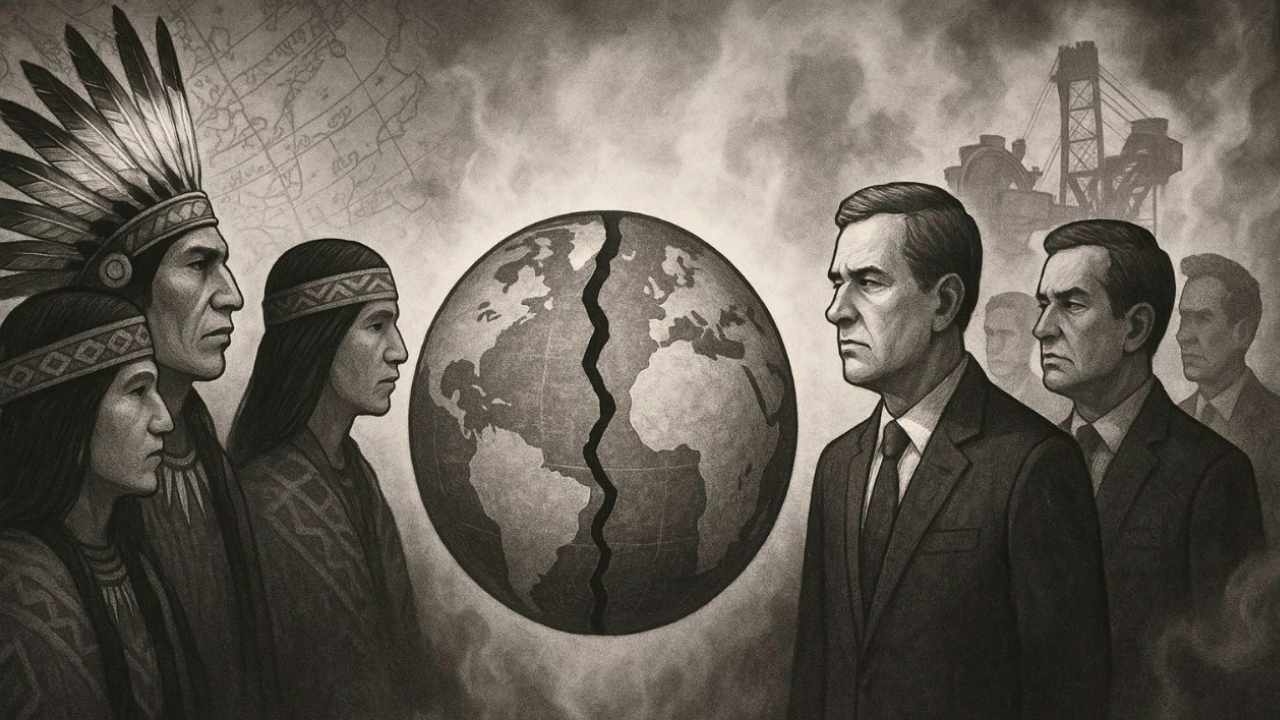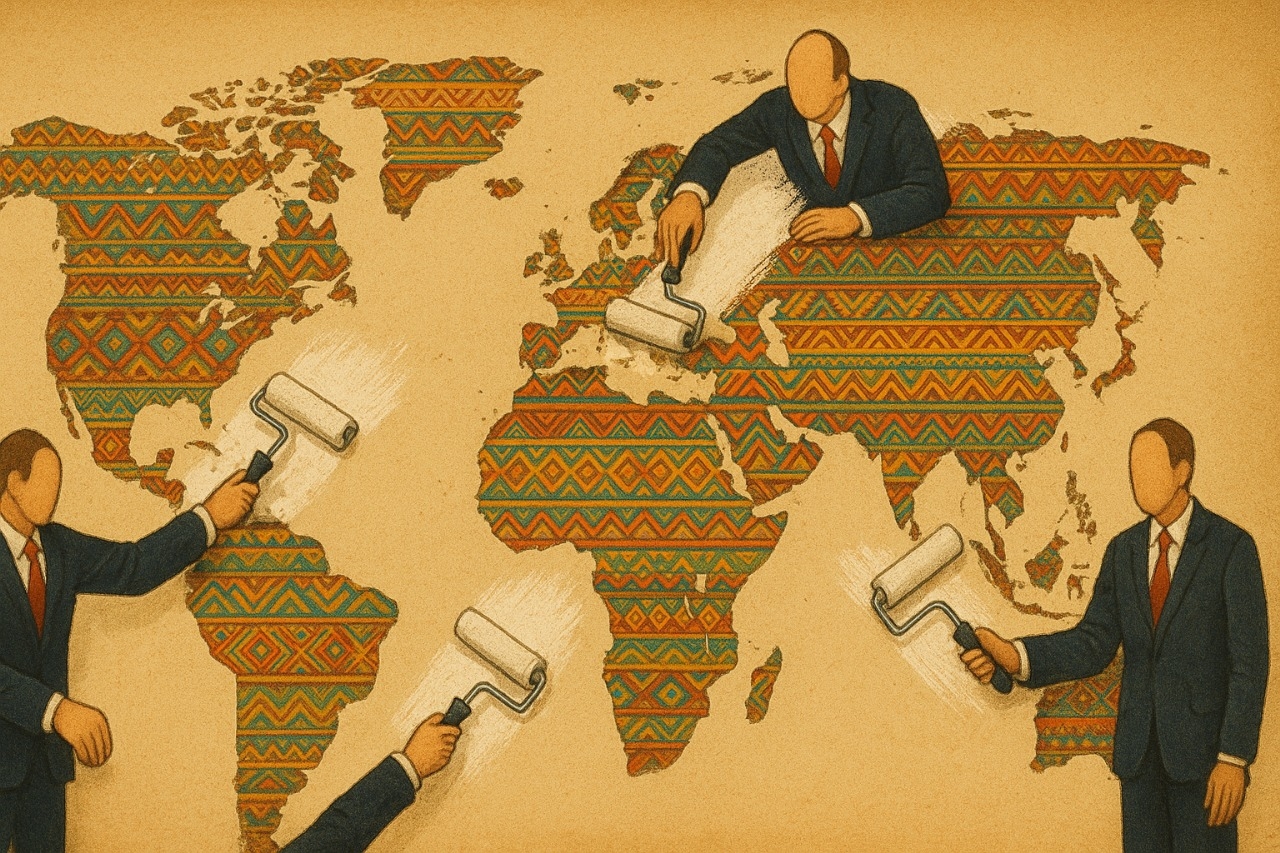International Day of the World Indigenous People: Celebration or Western Strategy to Divide and Control?
The celebration masks deeper issues of colonial guilt, with Western powers accused of exploiting the day for political advantage.
Total Views |

Every August 9th, communities around the globe come together to recognise World Indigenous Peoples Day. This important observance of the West honours the rich cultures, traditions, and contributions of Indigenous communities worldwide while raising awareness about the challenges, which were eventually created by the West’s colonialism.
Though, understanding this day helps us recognise the vital role Indigenous peoples play in our shared global community. And how their knowledge systems, sustainable practices, and cultural wisdom, which could have offered valuable insights for addressing modern challenges, again created by the West, like climate change and biodiversity loss, could have been cured.
On the one hand, the World Indigenous Peoples Day serves as a celebration of cultural tribute but also reminds us of the brutality of Western colonialism, which has threatened the age-old culture and diversity of the indigenous communities. Which has previously resulted in such an extent that indigenous communities struggle to maintain control over their ancestral lands.
Mining operations, deforestation, and development projects led by Western nations at mass scales often threaten sacred sites and traditional territories. These activities disrupt ecosystems that Indigenous peoples depend on for their livelihoods and cultural practices.
Climate change disproportionately affects Indigenous communities, particularly those in Arctic regions, small islands, and areas prone to extreme weather. Rising sea levels, changing precipitation patterns, and temperature shifts threaten traditional food sources and ways of life.
Objectives Promised By UN
- International Day of the World’s Indigenous Peoples aims to raise awareness, champion human rights, and highlight the vital contributions of Indigenous peoples to fields like environmental protection, culture, and traditional knowledge survival.
- UNESCO emphasises that Indigenous peoples are “actors of change, guardians of natural resources and carriers of unique worldviews.
- Annual themes vary. Recent examples include Indigenous Languages (2022), Indigenous Youth as Agents of Change for Self-determination (2023), and Food Security & Sovereignty through Self-Determination (2025).
The Hypocrisy of the West on Indigenous Peoples' Day
The western nations are performing a theatrical display of solidarity by observing celebrations and draughting committees and laws to undo the persistent threat posed by the West itself over the lands they preyed on through colonialism. These western nations are the same powers that historically led brutal hunting campaigns, wiping out native cultures, practices and traditions. They not only destroyed cultures but also wiped out the languages and ancient belief systems. From the forced assimilation of Native Americans in the United States to the cultural genocide of Aboriginal communities in Australia and Canada, Western countries have systematically erased entire civilisations in the name of “progress” and “civilisation”.

Today, the marginalisation continues; the horror still haunts as indigenous communities in the West still face continuous torture from forces, land grabs, economic exclusion and environmental exploitation. The indigenous community have paid much more for the fancy celebrations of 9th August.
Celebrating Indigenous Day while continuing exploitative policies is nothing more than a planned division of indigenous communities to whitewash centuries of oppression.
By championing “Indigenous Peoples Day”, Western powers are subtly exporting a dangerous, divisive narrative to other nations, which is aimed at separating people by pushing the narrative of a forged native population and a foreign population. The Western model of Indigenous Peoples Day imposes rigid identity frameworks that pit groups against each other, fuelling resentment, victimhood, and societal fragmentation.
The foreign-funded NGOs and activists, inspired by Western ideologies, often exaggerate cultural or ethnic fault lines, framing one group as perpetual victims and others as historical oppressors.
Furthermore, the West selectively highlights certain groups while ignoring others, based on geopolitical interests. Their version of “indigenous rights” rarely involves genuine empowerment; it is used by them as a tool of soft power, through which they can interfere in domestic affairs and destabilise governments.
Article by

Kewali Kabir Jain
Journalism Student at Makhanlal Chaturvedi National University of Journalism and Communication

